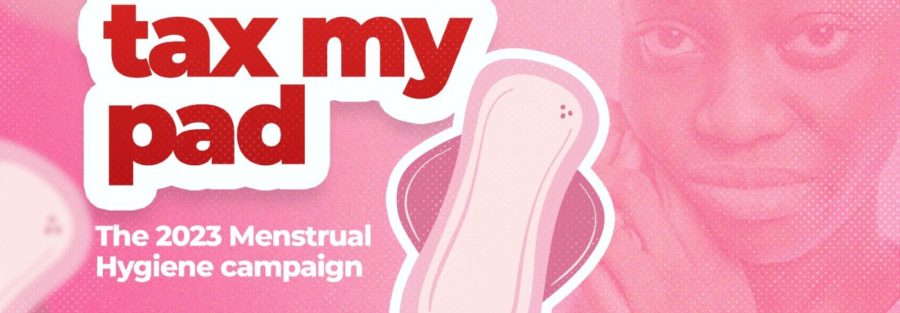As part of advocacy efforts to get the government of Ghana to remove taxes from sanitary products, we joined the Ghana Civil Society Organizations (CSOs) Platform on the Sustainable Development Goals (SDGs) to intensify advocacy efforts on the removal of taxes from sanitary products through a press conference, ahead of the reading of the national budget for 2024.
The Government of Ghana, under the Harmonized System Code 9619001000, classifies sanitary pads as ‘Miscellaneous Manufactured Articles’ which subjects them to a myriad of taxes including: 20% import duty; 15% Import VAT, and other import and statutory levies. This means that under the current tax regime, taxes are imposed on a biological necessity that women have no control over; thereby making sanitary pads unaffordable and inaccessible, especially to low-income households.
Sanitary products are currently enlisted in chapter 96 of the Harmonized System, and that attracts a 32.5% tax on imported sanitary pads, which comprises a 20% import duty and a 12.5% Value Added Tax. The impact of the taxes is the high cost of a pack of menstrual pad which is between GHC 20.00 – and GHC 40.00.
It needs to be re-emphasized that menstruation is a natural phenomenon and the imposition of taxes on sanitary pads which is a basic necessity of life is reinforcing the gender and social norms which we strive to minimize. The lack of accessibility and affordability is throwing girls and young women out of school and businesses which further widens the inequality gap in education and economic empowerment of women and girls. There are health implications for girls and young women who resort to the use of unhygienic menstrual products because sanitary pads are expensive.
All products (sanitary pads, reusable pads, etc.) should be made affordable, accessible, and available to enable women and girls not to miss out on any educational and economic activities during their menstrual cycle.
The government should support the local industries by giving them tax exemptions and incentives so they can reach their production capacities and meet market demands.
Click here to read the full statement and our key ASKS to the government of Ghana.



